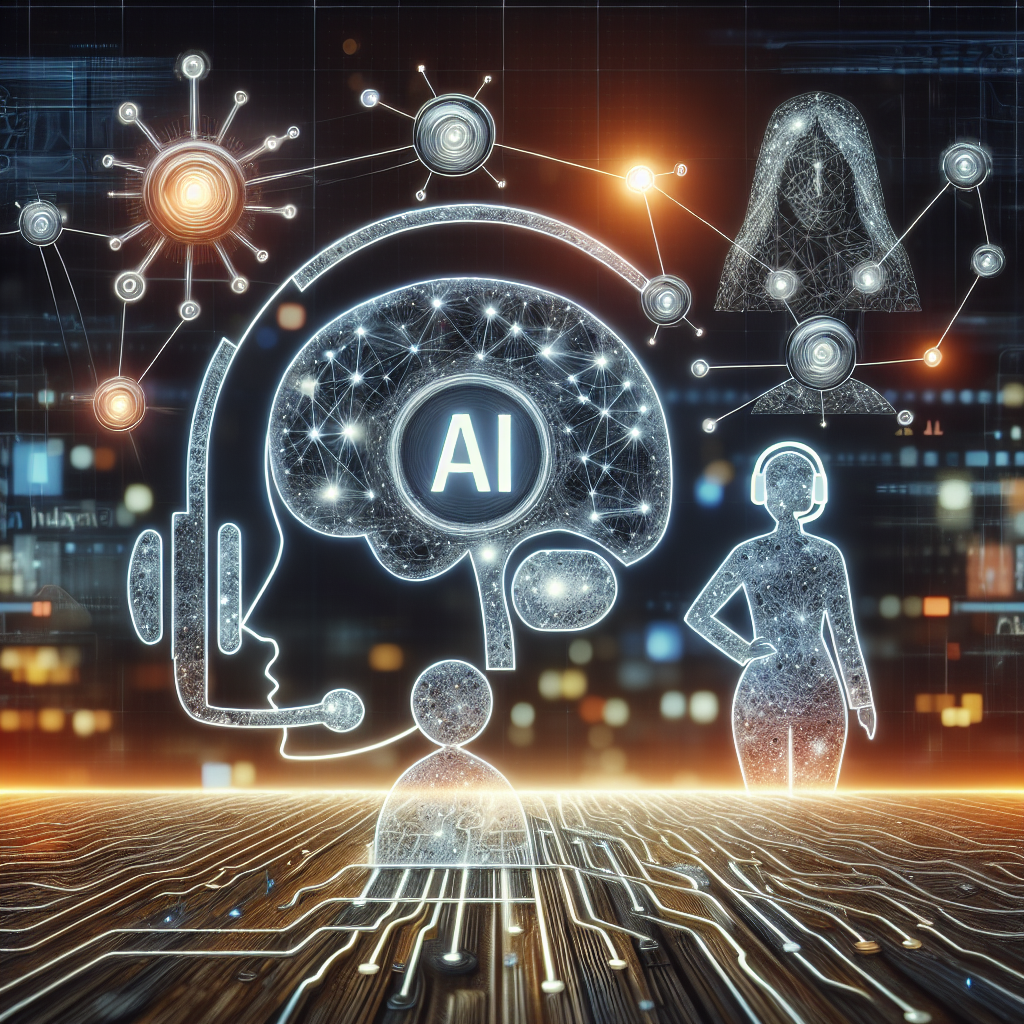Artificial Intelligence (AI) has revolutionized many industries, and customer service is no exception. With the ability to analyze large amounts of data, understand natural language, and learn from interactions, AI has the potential to significantly enhance the customer service experience. In this article, we will explore the various ways in which AI can be used in customer service and the benefits it can bring.
One of the key areas where AI is making a big impact in customer service is through chatbots. Chatbots are AI-powered virtual assistants that can interact with customers in real-time, answering their questions, providing information, and even resolving issues. These chatbots can be integrated into websites, social media platforms, and messaging apps, providing a seamless and efficient customer service experience.
Chatbots are particularly useful for handling routine and repetitive tasks, such as answering frequently asked questions, providing order status updates, and scheduling appointments. By automating these tasks, chatbots free up human agents to focus on more complex and high-value interactions, improving overall efficiency and customer satisfaction.
Another way in which AI is transforming customer service is through sentiment analysis. AI algorithms can analyze customer interactions, such as emails, chats, and social media posts, to understand the emotions and sentiments expressed by customers. This information can help businesses identify potential issues and trends, allowing them to proactively address customer concerns and improve the overall customer experience.
AI-powered analytics tools can also help businesses gain insights into customer behavior and preferences. By analyzing customer data, such as purchase history, browsing patterns, and feedback, businesses can better understand their customers’ needs and tailor their products and services accordingly. This personalized approach can help businesses build stronger relationships with customers and increase customer loyalty.
In addition to chatbots and sentiment analysis, AI can also be used to automate customer service processes, such as ticket routing, issue resolution, and feedback collection. AI algorithms can analyze customer inquiries, assign them to the appropriate department or agent, and even suggest solutions based on previous interactions. This automation can help businesses streamline their customer service operations, reduce response times, and improve overall efficiency.
While AI has the potential to greatly enhance the customer service experience, it is important to remember that it is not a replacement for human agents. AI-powered tools should be used to complement human agents, not replace them. Human agents bring empathy, creativity, and problem-solving skills to customer interactions, qualities that are difficult for AI to replicate.
Despite the many benefits of AI in customer service, there are also challenges and limitations to consider. AI algorithms can sometimes make mistakes or misinterpret customer inquiries, leading to frustration and dissatisfaction. It is important for businesses to continuously monitor and refine their AI-powered tools to ensure they are providing accurate and helpful responses to customers.
Moreover, some customers may prefer speaking to a human agent rather than interacting with a chatbot. Businesses should offer customers the option to speak to a human agent if they prefer, especially for complex or sensitive issues. Providing a seamless transition between AI-powered tools and human agents can help businesses deliver a more personalized and responsive customer service experience.
Overall, AI has the potential to revolutionize customer service by automating routine tasks, analyzing customer sentiment, and providing valuable insights into customer behavior. By leveraging AI-powered tools, businesses can improve efficiency, increase customer satisfaction, and build stronger relationships with customers. However, it is important for businesses to use AI in customer service responsibly and ethically, ensuring that customers’ privacy and data security are protected.
FAQs:
Q: Can AI completely replace human agents in customer service?
A: While AI can automate routine tasks and provide valuable insights, it is not a replacement for human agents. Human agents bring empathy, creativity, and problem-solving skills to customer interactions, qualities that are difficult for AI to replicate. AI should be used to complement human agents, not replace them.
Q: How can businesses ensure that AI-powered tools provide accurate and helpful responses to customers?
A: Businesses should continuously monitor and refine their AI-powered tools to ensure they are providing accurate and helpful responses to customers. This can involve training the AI algorithms with additional data, monitoring customer interactions, and incorporating feedback from customers and agents.
Q: How can businesses offer customers the option to speak to a human agent?
A: Businesses can provide customers with the option to speak to a human agent through a seamless transition between AI-powered tools and human agents. This can involve integrating chatbots with live chat systems or providing a phone number for customers to call if they prefer to speak to a human agent.
Q: What are some of the limitations of AI in customer service?
A: Some of the limitations of AI in customer service include the potential for mistakes or misinterpretations, the inability to replicate human empathy and creativity, and the preference of some customers to speak to a human agent. Businesses should be aware of these limitations and use AI responsibly and ethically in customer service.

